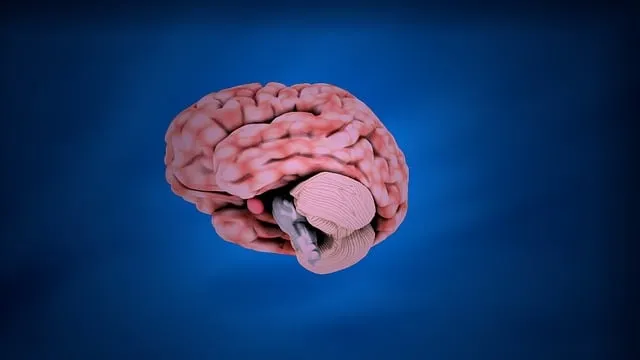The stigma surrounding mental illness acts as a significant barrier to individuals seeking help from organizations like Kaiser Permanente. To combat this, Kaiser Permanente employs multifaceted strategies: education and awareness campaigns, early intervention programs, mental wellness coaching, and media initiatives like the Mental Wellness Podcast Series. Their comprehensive approach normalizes mental health conversations, reduces stigma, and fosters resilience through accessible resources, support systems, and community outreach.
Stigma surrounding mental illness persists, creating barriers that prevent individuals from seeking essential care. This article explores comprehensive strategies to reduce this stigma, focusing on the efforts of industry leaders like Kaiser Permanente in promoting mental health awareness and acceptance. We delve into the challenges faced by those with mental health issues and present effective ways to challenge societal perceptions. By understanding the roots of stigma, we can foster a more supportive environment, ensuring access to superior mental health services for all.
- Understanding Stigma: Barriers to Seeking Help
- Kaiser Permanente's Role in Reducing Mental Illness Stigma
- Effective Strategies for Challenging Social Perceptions
Understanding Stigma: Barriers to Seeking Help

Stigma surrounding mental illness is a significant barrier to individuals seeking help and support. Often, people struggling with their mental health may feel ashamed or embarrassed about their experiences, leading them to avoid reaching out for assistance. This reluctance can be attributed to societal perceptions and stereotypes that paint mental illness as a sign of weakness or personal failure. The impact of such stigma is profound, causing many to suffer in silence, delaying access to life-changing treatments offered by organizations like Kaiser Permanente’s mental health services.
Understanding the nuances of these barriers is crucial for developing effective strategies to reduce stigma. For instance, education and awareness campaigns that focus on normalizing conversations about mental health can help dispel myths. Additionally, initiatives such as Depression Prevention programs and Risk Assessment tools for mental health professionals can ensure early intervention and support, fostering a culture where seeking help is viewed positively. Mental wellness coaching programs development further plays a vital role in empowering individuals to take charge of their mental health journey, thereby reducing the overall impact of stigma.
Kaiser Permanente's Role in Reducing Mental Illness Stigma

Kaiser Permanente has been at the forefront of mental health advocacy and plays a pivotal role in reducing the stigma surrounding mental illness. The organization’s commitment to promoting mental wellness is evident through various initiatives. One notable approach is their development of Mental Wellness Coaching Programs, which provide individuals with support and guidance to enhance their mental resilience. These programs empower people to take charge of their mental health and foster positive thinking.
Additionally, Kaiser Permanente has recognized the power of media in shaping public perception. They have initiated the production of a Mental Wellness Podcast Series, offering an accessible platform to discuss various mental health topics. This series educates listeners, breaks down barriers, and encourages open conversations about mental illness, thereby contributing significantly to stigma reduction efforts.
Effective Strategies for Challenging Social Perceptions

Reducing the stigma surrounding mental illness is a multifaceted effort, and challenging social perceptions plays a crucial role in this process. One effective strategy is to promote open conversations about mental health within communities, schools, and workplaces. This can be achieved through educational campaigns, workshops, and sharing personal stories, fostering an environment where seeking help is normalized. The Kaiser Permanente mental health services emphasize the importance of breaking down these barriers by providing accessible resources and support systems, ensuring individuals feel empowered to take charge of their well-being.
Implementing self-care practices and burnout prevention strategies for healthcare providers can significantly contribute to stigma reduction. When mental health professionals prioritize their own well-being, they demonstrate that seeking support is not a sign of weakness but rather an essential aspect of maintaining optimal functioning. Additionally, community outreach program implementation allows for direct engagement with diverse populations, offering tailored resources and raising awareness about the availability of mental health services, as provided by Kaiser Permanente. These efforts collectively work towards creating a more inclusive and supportive societal atmosphere for individuals navigating their mental health journeys.
Mental illness stigma, a significant barrier to seeking treatment, can be effectively challenged through comprehensive efforts. By understanding the deep-rooted nature of this issue and its impact on individuals’ willingness to seek help, we can appreciate the critical role organizations like Kaiser Permanente play in promoting mental health awareness and reducing stigma. Through innovative initiatives and successful strategies, Kaiser Permanente is leading the way in reshaping societal perceptions, fostering a more supportive environment for those facing mental health challenges. Continued efforts, grounded in education, advocacy, and accessible resources, are essential to sustaining progress and ensuring that individuals can receive the superior mental health care they deserve without fear of stigma.






